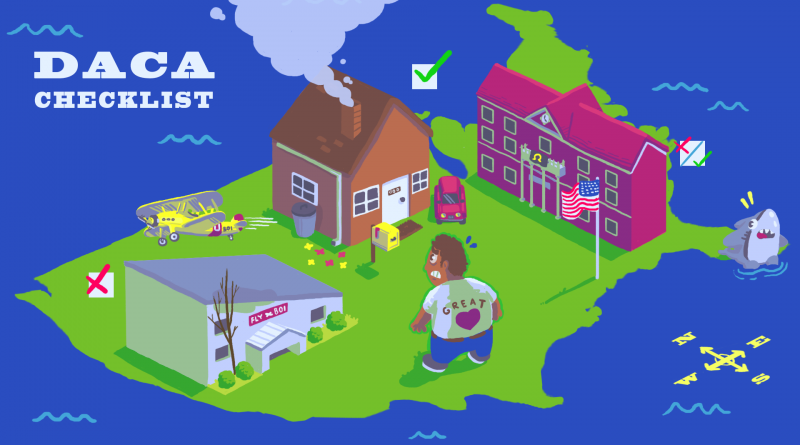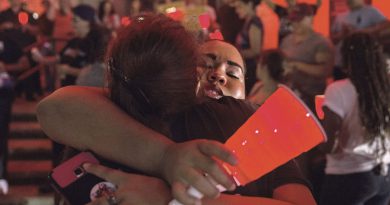To What Extent Does DACA Offer Legal Status?
I am one of those 750,000 men and women with Deferred Action Early Childhood Arrival (DACA) status.
Since DACA’s creation by an executive order on Aug. 15, 2012, the status has allowed undocumented young students to work, study and have an everyday life without running into issues caused by being an illegal immigrant.
After nine years in this country, in 2012, I applied for DACA status and obtained it. It has been a blessing that has helped me attain a regular life others take for granted like being able to study and have a job and a car.
But I still face many restrictions. If I didn’t have these barriers, I could achieve a lot more.
When I graduated high school with my DACA status, I was able to attend InterAmerican Campus. Quickly, I found out that I didn’t qualify for most of the scholarships because of the prerequisite of being a citizen or a permanent resident. Financial aid did not give any money to help me to study, because I am not a citizen or resident, forcing me to get a part-time job, and at one point a full-time job, to pay for my classes and books.
I was barred from all international internships that I applied for because once I leave the country, I am not guaranteed re-entry into the United States.
And the worst part is I cannot change any of these barriers. There is no path to permanent residency or citizenship through my DACA status.
There’s no way to attain the American Dream I came here to pursue.
I came to this country from Tegucigalpa, Honduras looking to get a shot at a better life. My mom left her job as a nurse hoping to work in the U.S. because it was common practice in Honduras to replace older nurses with younger ones eager to work for less pay.
We also came here because she was thinking about my future considering Honduras is in an economic decline and has a high rate of violence. It is the nation with the highest murder rate in the world.
Here, I am hungry to further my education and excel. And I have, to an extent.
After graduating high school, I was looking to pursue my dream and join the United States Air Force, but I was not able because an applicant needs to be a permanent resident or a citizen.
Now, with the current administration, many DACA recipients feel insecure about their status in the United States because of the increased anti-immigrant sentiment from the general population and from the government.
I hope President Trump will follow through with his word. He said at a press conference last month: “We’re going to show great heart. DACA is a very, very difficult subject for me. For me, it’s one of the most difficult I have. Because you have these incredible kids, in many cases, not all, in some cases they have the DACA, drug dealers and gang members, too, but absolutely incredible kids. I would say mostly they were brought here in such a way—it’s a very tough subject, we’re going to have to deal with DACA with a lot of heart.”




